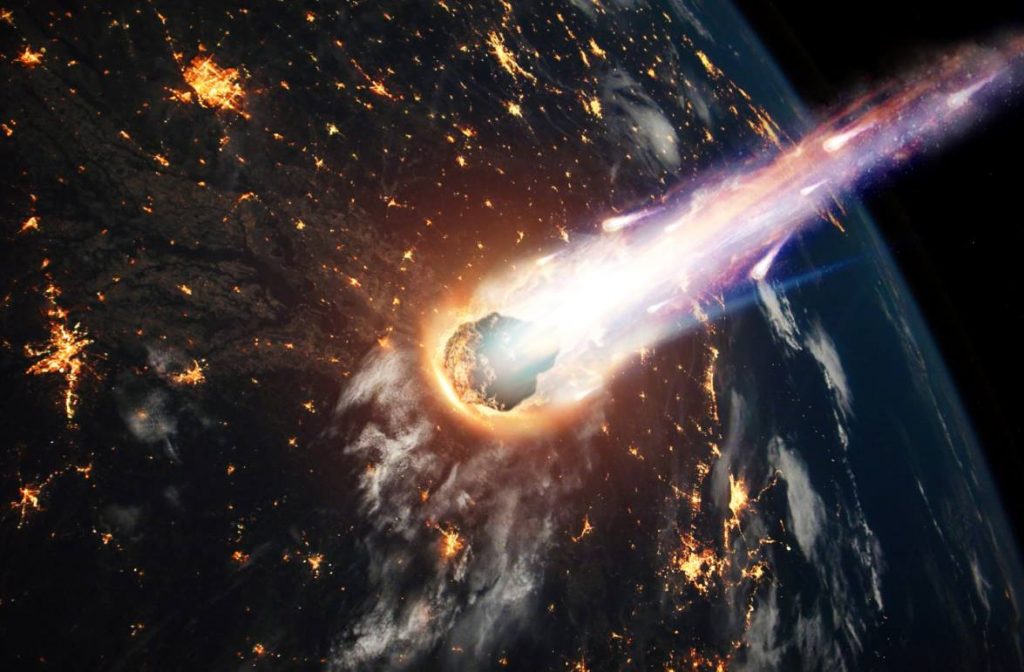
According to the warnings given by a NASA scientist, our planet could experience an “extinction-level” event like an unexpected asteroid or comet strike. The most discouraging aspect of the gloomy news is that humans are not properly equipped for such a disaster. Award-winning scientist at NASA’s Goddard Space Flight Center, Dr. Joseph Nuth, informed attendees at the annual American Geophysical Union convention that though such an event has a rare chance of occurring, policymakers should start preparing for the possibility.
“But on the other hand, they are the extinction-level events, things like dinosaur killers, they’re 50 to 60 million years apart, essentially,” Dr. Joseph Nuth stated. “You could say, of course, we’re due, but it’s a random course at this point.”
Nuth revealed that our planet has had “close encounters” in the past, with a comet flying into Jupiter in 1996 and a comet passing “within cosmic spitting distance of Mars” in 2014. Nuth used the latter to exemplify his concern, stating that the comet was only discovered 22 months before the near incident, which wouldn’t be enough time in the case of our planet.
“If you look at the schedule for high-reliability spacecraft and launching them, it takes five years to launch a spacecraft,” Dr. Joseph Nuth said. “We had 22 months of total warning.” With NASA recently establishing a planetary defense office, Nuth has suggested a possible solution of building an interceptor rocket and an observer spacecraft.
With periodic testing, Nuth says that it would be possible to cut the initial five-year schedule in half but said that to get down to 22 months would be “basically a hail-mary pass.” In a statement to The Post, NASA officials said that they place a high priority on finding hazardous asteroids and comets in advance, stating that nothing of such concern has been detected for the next century.
“To date, approximately 95 percent of potentially hazardous asteroids and comets larger than 1 kilometer in size that could pose a danger to Earth have been found,” the statement reads. “Additionally, there are no detected impact threats for the next 100 years.”
NASA has responded to concerns about a potential asteroid collision with Earth this year. The specific asteroid, named 2007 FT3, was first observed in 2007 but disappeared after just one day. NASA thoroughly investigated the situation to determine if this "lost" asteroid poses any danger.
Astronomers calculated the orbit of the asteroid, which earned the "lost" label due to its disappearance after the 2007 sighting. The purpose of this assessment was to assess the risk it poses to Earth, and it has been confirmed that it does indeed pose a risk, according to UNILAD. This has raised concerns about the potential for major damage in certain regions if a collision were to occur.
A NASA spokesperson addressed these concerns and provided information about this celestial threat. In a statement to the Standard, NASA reassured the public that there are no known threats of asteroid impacts on Earth in the next century. The spokesperson emphasized that NASA and its partnering organizations actively observe the skies to classify, locate, and track asteroids and near-Earth objects (NEOs), including those that may come close to our planet, as reported by UNILAD.
According to Dr. Paul W Chodas and Dr. Donald K. Yeomans, asteroid 1997 XF11 is expected to safely pass beyond the Moon's distance from Earth in October 2028, with no chance of colliding with our planet. The two experts reported that the asteroid will be at a comfortable distance of approximately 600,000 miles.
This announcement by NASA's Jet Propulsion Laboratory astronomers in Pasadena, CA, brings relief to the scientific community and the general public alike. The asteroid in question, named 1997 XF11, had initially caused some concern due to its large size and close approach to Earth. However, the calculations made by Dr. Donald K. Yeomans and Dr. Paul W. Chodas, renowned JPL scientists, have put those worries to rest.
The expertise of Dr. Yeomans and Dr. Chodas in calculating the paths of celestial objects in the solar system has been crucial in determining the trajectory of 1997 XF11. Their meticulous calculations and extensive knowledge of celestial mechanics have allowed them to accurately predict the asteroid's future path, providing reassurance to the global community.